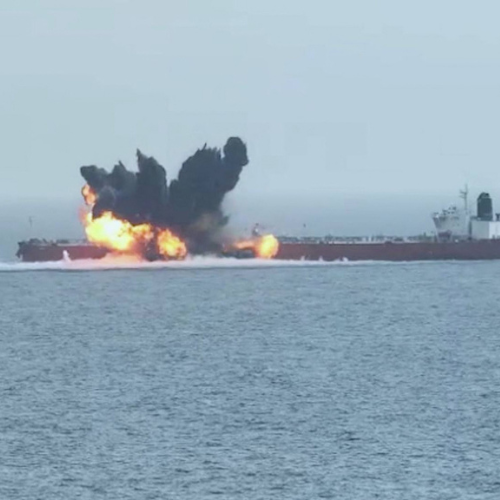In recent news, a shocking partnership has emerged that threatens safety in the Red Sea. The Houthis, a group of militants from Yemen, are reportedly using Russian satellite data to carry out attacks on ships traveling through this crucial waterway. This new alliance raises serious concerns about shipping security and stability in the region.
Understanding Houthi Attacks and Their Motivations
The Houthis are a group involved in Yemen’s ongoing conflict, which has caused immense suffering and hardship for many people. They have strong ties to Iran, a country known for its contentious relationships with the West. Over the years, the Houthis have been involved in various attacks on different targets, but their focus on maritime aggression is alarming.
The Red Sea is a vital route for global trade. Many ships travel through these waters, carrying important goods like oil and food. Recently, with rising tensions due to events in other parts of the Middle East, such as Israel’s military actions in Gaza, the Houthis have ramped up their attacks. They are using more advanced technology, including drones and missiles, to target vessels.
What makes this situation even more concerning is the Houthis’ access to Russian satellite data. This information helps them better locate and strike their targets, increasing the effectiveness of their attacks. The Houthis are becoming more capable and dangerous, which poses a significant risk to international shipping.
The Role of Russia and Iran
According to various sources, including unnamed defense officials in Europe, the Houthis are receiving assistance from Russia. The Russian government, led by President Vladimir Putin, appears willing to disrupt the order established by Western countries. This partnership signifies a deeper collaboration between Russia, Iran, and the Houthis, which complicates an already unstable situation in the Middle East.
Houthis Targeted: US Imposes Sanctions on 2 Indian Nationals – Rahul Warikoo and Dipankar Keot
Iran’s Islamic Revolutionary Guard Corps (IRGC) plays a crucial role in facilitating this partnership. The IRGC is known for supporting militant groups in the region, including the Houthis. By sharing Russian intelligence, Iran is enhancing the Houthis’ military capabilities. This troubling alliance shows how different countries are willing to work together, even if it means causing chaos and instability in the region.
Furthermore, there are concerns about other military supplies reaching the Houthis. Reports suggest that Iran is also negotiating to transfer powerful anti-ship missiles to the Houthis. These missiles could allow the Houthis to target ships more effectively and pose an even greater threat to global shipping lanes.
The Impact of Attacks on Global Shipping and Security
The combination of Russian support and Houthi aggression creates a dangerous scenario in the Red Sea. This area is a critical artery for global commerce. With the Houthis becoming more powerful and aggressive, attacks could significantly disrupt international shipping. The Red Sea’s safety is crucial not only for regional countries but also for economies around the world that rely on trade.
As tensions rise, many nations are watching closely. The possibility of increased conflict in the Red Sea has far-reaching implications. Countries that depend on this vital route for their goods may face higher shipping costs and delays. The situation raises alarms about how fragile peace and stability can be in the region.
In conclusion, the partnership between Russia and the Houthis, facilitated by Iran, is a concerning development. It highlights how global politics can intertwine with local conflicts, leading to dangerous outcomes. As the Houthis continue to receive support and access to advanced technology, the threats of attacks to maritime safety in the Red Sea become more pronounced. The world is left to grapple with the implications of this dangerous alliance.


